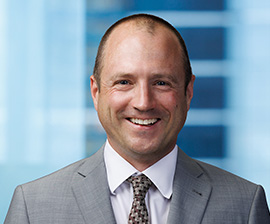Authored by: David Grace and Stephanie Gibbons
In a recent decision, the High Court of Australia considered the nature of an ‘understanding’ for the purposes of the restrictive trade practices provisions within Part IV of the Competition ...

The COVID-19 pandemic has dramatically increased an already significant trend of workers working from home. This blurs the line between what occurs in the course of a worker’s employment and their personal life.
The recent case of Workers’ Compensation Nominal Insurer v Hill [2020] NSWCA 54 explores employee safety when working from home and where that line is to be drawn. The scenario in this tragic case is unique in that it involved concurrent interpersonal issues between people that both worked closely together, and were in a relationship and raising children together.
Michel Carroll and Steven Hill were de facto partners, employed as financial advisers by a family company, S L Hill & Associates Pty Ltd, which carried on its business from the family home in New South Wales.
Mr Hill suffered from paranoid delusions that Ms Carroll was conspiring to steal his clients and ruin him. On 16 June 2010, Mr Hill killed Ms Carroll. He was charged with her murder but was found not guilty on the grounds of mental illness.
Ms Carroll had two dependent children, a teenage son and a newborn baby. The children made claims for death benefits under the Workers’ Compensation Act 1987 (NSW). As the company had been deregistered, the Workers’ Compensation Nominal Insurer responded to and denied the claims.
At first instance, the Workers’ Compensation Commission determined Ms Carroll died as a result of an injury arising in the course of her employment, in accordance with the Workplace Injury Management and Workers Compensation Act 1998 (NSW). Payments were ordered in favour of the children.’
The Nominal Insurer appealed against the Commission’s determination to the Deputy President, who dismissed the appeal. The Insurer then appealed to the NSW Court of Appeal on the basis that there was no causal link between employment and Ms Carroll’s assault and subsequent death.
The Court of Appeal dismissed the appeal, finding that Ms Carroll’s death occurred in the course of her employment, arose out of her employment, and that her employment was a substantial contributing factor to her death. The key reasons were as follows:
The Court of Appeal upheld the Commission’s decision to pay $450,000 in death benefits to the dependent children.
The scenario in this tragic case is unique in that it involved concurrent interpersonal issues between people that both worked closely together, and were in a relationship and raising children together.
The Court of Appeal’s decision highlights that an employer must consider more than simply ergonomics when an employee is working from home.
Psychological stressors and domestic issues are also important considerations. Usually there will be significant difficulty proving a causal connection between an injury caused by domestic violence and employment. However, this case demonstrates the novel situations that can arise when workers are allowed to work in an environment where the employer has less control.
This publication is for information only and is not legal advice. You should obtain advice that is specific to your circumstances and not rely on this publication as legal advice. If there are any issues you would like us to advise you on arising from this publication, please let us know.
Subscribe to our interest lists to receive legal alerts, articles, event invitations and offers.



Cooper Grace Ward acknowledges and pays respect to the past, present and future Traditional Custodians and Elders of this nation and the continuation of cultural, spiritual and educational practices of Aboriginal and Torres Strait Islander peoples.
Fast, accurate and flexible entities including companies, self-managed superannuation funds and trusts.